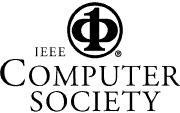
Motivation and scope
Linguistic Description of Data (LDD) is the description of relevant aspects of a dataset for a human user given in textual form. This is especially important due to the growing amount of data stored and accessible not only to companies and organizations for management purposes, but to common people that is interested in having concise and understandable information and advices on the basis of the evolution of their data. The latter include not only data from their professional activity, but personal data like energy bills, clinical tests, etc., as well as freely-available data about topics of general interest like weather, contamination, traffic, or the price of any kind of products.
LDD has an enormous potential for helping both organizations and common people in automatically obtaining periodical, understandable reports and updates of data of their interest, as well as on-demand summaries, without becoming an expert in knowledge representation and uncertainty measures.
LDD is related to research areas like Natural Language Generation (NLG), Knowledge Discovery in Databases (KDD), Flexible Query Answering Systems for Data (FQAS), and Human-Machine Interaction (HMI). NLG, the task of generating NL from a machine representation, has provided the current state-of-the-art, technologies in LDD. Like KDD, LDD is intended to provide novel, interesting, previously unknown, and potentially useful knowledge, particularly in the form of a collection of natural language sentences. In addition to the usual data mining tasks, LDD requires the development of models for representing the semantics of language expressions, and how they will be used. LDD is also related to FQAS because of the inherent imprecision, vagueness, and uncertainty in linguistic terms and sentences, as well as the necessity to assess validity and relevance. Finally, LDD intends to improve human-machine interaction, performing automatic natural language generation with adaptation to specific users and contexts. All the aforementioned are key topics of research within this area.
The objective of this workshop is to provide a forum for the exposition and discussion of the most recent developments in LDD.
Topics
Topics of interest include, but are not
limited to:
- Association rules extraction for LDD
- Rule learning for content determination
- Concept extraction from data
- Pattern extraction and discourse models for discourse planning
- Syntactic realization of knowledge extracted from data
- Clustering of data and messages for LDD
- Architecture of LDD generators
- Modeling the semantics of linguistic terms employed in LDD and lexical choice
- Learning Ontologies from Data
- Content selection and determination for LDD
- Linguistic human-machine interaction for data access and description
- Computing with Words for LDD
- Uncertainties in language
- Models for assessing relevance of linguistic expressions.
- LDD Applications: description of time series data, visual information, databases, etc..
|
|
Latest
News |
|
Call for Paper available.
Submissions link active.
|
| |
| | |
|
Important
dates |
Paper submission
August 10th,
2012 |
Notification of
acceptance
October 1st, 2012 |
Camera-ready
copies and copyright forms
October 15th, 2012 |
Workshop
December 10th, 2012
| |
|



